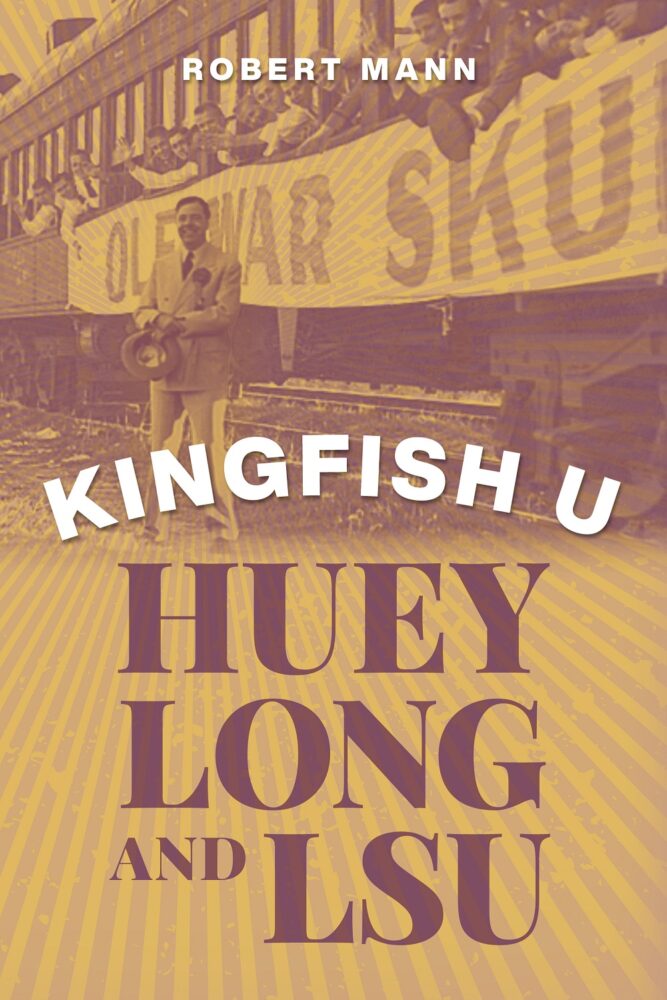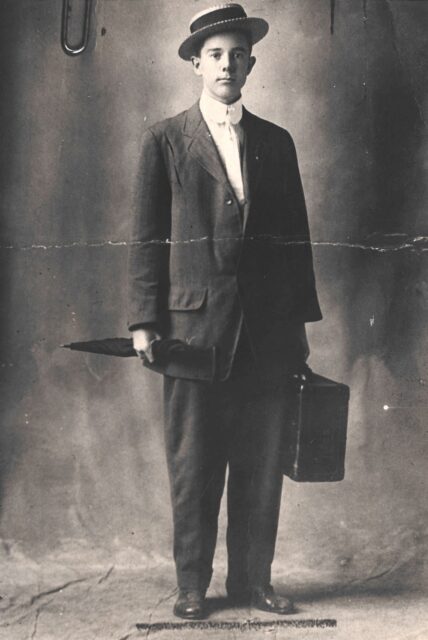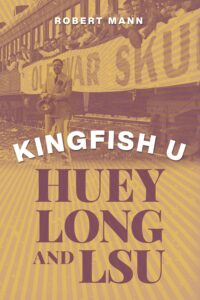“I am going to do something for you.”
An excerpt from Kingfish U: Huey Long and LSU by Robert Mann
Published: August 31, 2023
Last Updated: November 30, 2023

LSU Press
First place in the debating and literary contests came with a four-year exemption from LSU fees (worth about fifty dollars a year). Held in the university’s Garig Hall, the debate addressed this proposition: “That the United States Navy should be materially increased at once.” Long reported, “I fared badly, but was given honorable mention.” It is not known if he argued in the affirmative or the negative.
Long returned to LSU the following April for another try at a rally prize, this time in the “declamation,” or speech-making, contest. For weeks, he rehearsed his presentation—a speech excerpt by journalist and orator Henry W. Grady—atop a stump in the woods. He also planned to compete in the one-mile run and on the relay team.
From the rally’s inaugural session in 1909, dozens of Baton Rouge families had welcomed rally competitors into their homes for the two-day event. In 1910, Long and some friends stayed at the home of Thomas H. Harris, the state’s superintendent of education. Harris later remembered Long as “a perfect portrait” of the adult he would become. “He came swaggering into the house, leaving the baggage for the others to bring in, and introduced himself to Mrs. Harris. He was all over the place in a few minutes and met all members of the family, including Lily, the cook. He was always late for his meals, left his clothes all over the bathroom floor, and had everybody in the house awake by five or six o’clock in the morning.” As Long prepared to leave the house the day of his debate, Harris asked him, “Well, Young Sprout, how do you think you will come out in your contest?” Long answered, “If I get justice, I’ll win.”

Long as a young man, ca. 1910–1914. Wikimedia Commons.
But he did not win. First place went to a young woman Long judged undeserving. Afterward, a surly Long wandered into the room where the debate was about to begin. He persuaded the judges to let him enter this contest. The topic was, “Resolved, that women in the United States should be granted suffrage on equal terms with men.” Long argued against women’s suffrage because, he said, “they got too many rights, right now. That’s why no boy ain’t gonna win nothing here.” Long returned to Harris’s home that evening and informed him, “The committee was ignorant, or bought, and gave me third place.” (He finished fourth in declamation.) This, he later claimed, earned him a modest scholarship. It is doubtful he won anything. LSU awarded scholarships only to first-place finishers in the rally’s choral performance and fee exemptions for those who won the academic contests.
Long may not have won a State Rally competition, but he and classmate Harley Bozeman enjoyed everything else about LSU and Baton Rouge. The Harrises’ teenage son, Morton Evans, escorted the two wide-eyed country boys around town. “This was the first time either of us had ever ridden on a streetcar,” Bozeman recalled.
As the boys prepared to return to Winnfield, Long told Harris’s wife, Mary Elizabeth, “Mrs. Harris, you have been mighty good to us, and when I get to be governor, United States senator, and president of the United States, I am going to do something for you. I am on my way and will not be stopped by a committee of ignorant professors.” Eighteen years later, in May 1928, Harris and her husband would stand in a reception line at the Governor’s Mansion, waiting to congratulate their former house guest on his election as Louisiana’s governor. “Do you recall what I told you?” the new governor asked Mary Elizabeth, recalling his 1910 stay in her home. “Well, I am on my way, and I’ll make the rest of the journey.” And then he asked, “How are Uriah, Tate, Morton, Sadie [Harris’s children], and Lily, the cook?”
EXCERPT FROM:
The Kingfish U: Huey Long and LSU
by Robert Mann
$34.95; 368 pp.
Louisiana State University Press
June 2023

